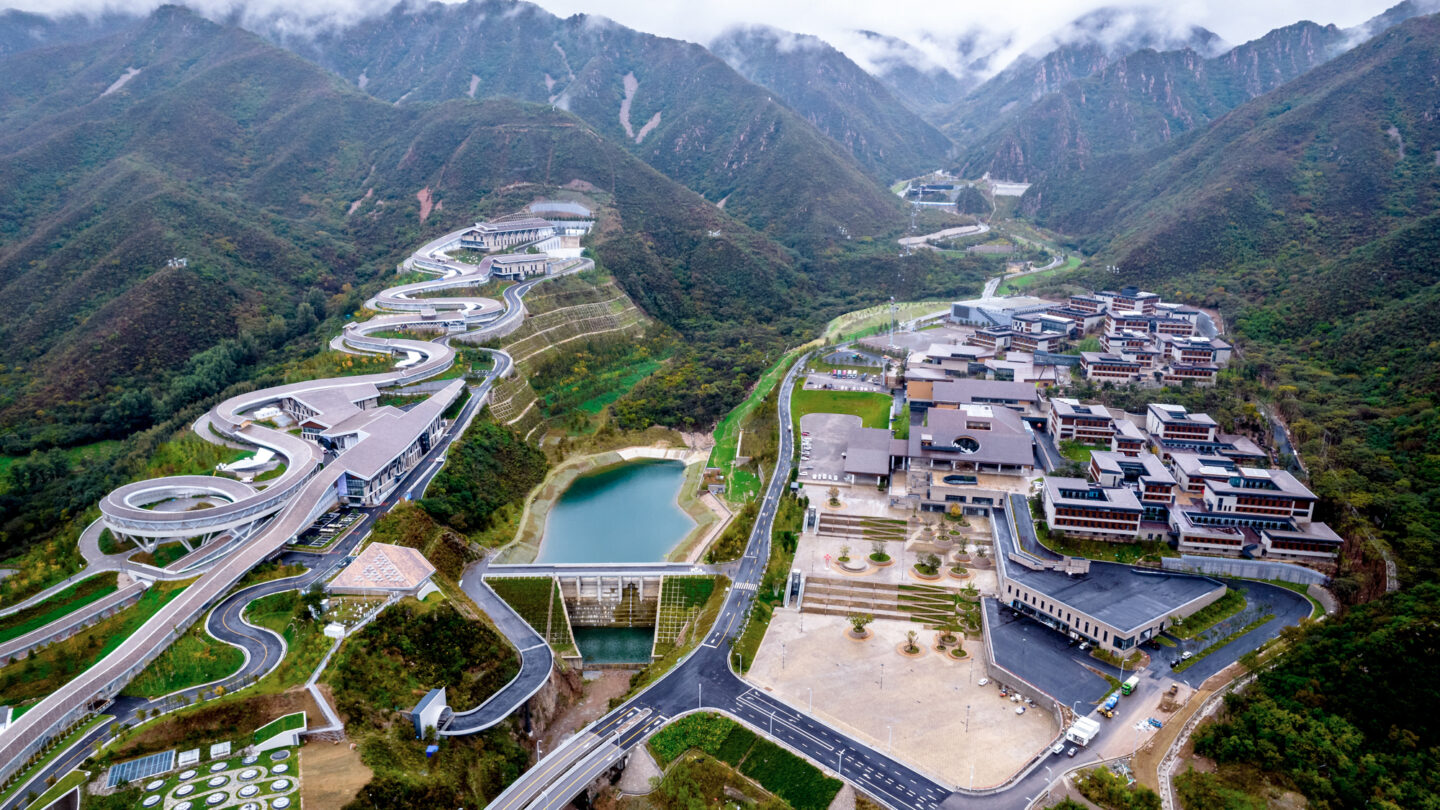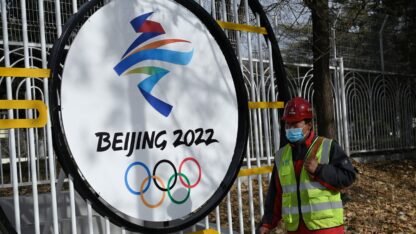BEIJING – Noodles will be served by a robot — just one of the many ways that China is aiming to keep the Olympics free of COVID as an estimated 13,000 international athletes and journalists descend on Beijing, China’s capital, for the Winter Olympic Games that start on February 4.
Hosting the Olympics presents a massive challenge for China, where for the last two years, authorities have implemented some of the most rigorous prevention COVID policies in the world. The country has closed its borders to nearly all travelers and locked down cities over just a handful of infections.
The global surge in omicron cases has also put authorities on edge. In nearby Tianjin – a 20-minute high-speed train ride away from Beijing – authorities tested all 14 million residents after a few dozen omicron infections were discovered.
However, the Games will go on.
“Presently, we are operating smoothly and everything is under control. As of yet, we have no plans to lock down Beijing and seal the city,” says Huang Chen, a health officer at the Beijing Organizing Committee for the Games.
Here’s how China plans to hold an event of such scale and keep it, ideally, COVID-free.
Everyone will live, work and compete inside what authorities have termed a “closed loop.”
This loop includes every winter sports competition and training site in Beijing as well as nearby Yanqing and Zhangjiakou and designated hotels where participants and other attendees will stay.
From the moment they land at one of Beijing’s airports, all Olympic attendees will enter this “loop,” which will be carefully guarded to cut off all access with the greater Chinese population. Each of the 25 sites that is part of the loop has already been hemmed in by chicken wire and sheet metal.
Beijing’s Olympic organizers say they have also added amenities to the sites, like coffee shops and even salons where people can get a perm or a manicure. Some canteens will be partially staffed by automated cooking machines, including a robot arm that slowly descends from the ceiling with a plate of noodles, to minimize human contact.
Designated cars will take athletes and journalists from site to site.
A special taxi fleet and shuttle service are in place so participants can hop around various Olympic sites without interacting with anyone outside the closed loops.
The vehicles are so closely regulated that Beijing authorities have told residents to avoid touching Games vehicles at all costs, even if the cars crash and people inside need help. In that case, residents are supposed to alert a special emergency ambulance system reserved for Games-related road injuries.
Beijing will also be reducing the number of ordinary vehicles on the road during the Games by only allowing cars with certain license plate numbers to drive on certain days in an attempt to reduce traffic congestion.
Daily testing is mandatory but that’s just one of the precautions.
Olympic Games participants get to skip the three-week quarantine all other international travelers must undergo when entering China these days – quarantining 10,000-plus people before the Games was considered too cumbersome. The guiding principle is to contain any potential virus cases within the closed loop.
However, all participants will have to prove they are fully vaccinated, get tested before and after landing in Beijing, and then submit to COVID tests each day for the entirety of the Games. Armpit sensors will monitor the body temperature of athletes at all times.
Interviews with journalists will take place 6 feet apart or behind glass panels.
Even spectators will be closely vetted.
Unlike past Olympics, China has not made ordinary spectator tickets available to the general public. So far, authorities have been inviting select residents to fill the stands, but they will have to undergo a COVID screening before each event — a procedure that could take up to seven hours.
Expressions of celebration are also strictly limited. Beijing authorities and the International Olympic Committee’s official guidelines for this Winter Olympics suggest that spectators clap rather than shout, cheer or sing lest their exhalations spread COVID pathogens.
Exiting the closed loop won’t be so easy.
Games participants have to take specially chartered flights to leave the country to limit contact with the public.
For people who want to remain in China after the Games, exiting the Olympic bubble will be like traveling from a foreign country back into China. The 19,000 volunteers and staff serving the Games will be subject to a two-to-three week quarantine before being able to go home.
Copyright 2022 NPR. To see more, visit https://www.npr.org.
9(MDAxODM0MDY4MDEyMTY4NDA3MzI3YjkzMw004))

9(MDAxODM0MDY4MDEyMTY4NDA3MzI3YjkzMw004))







